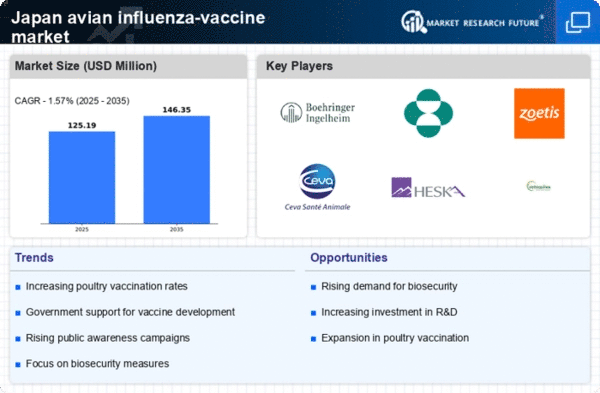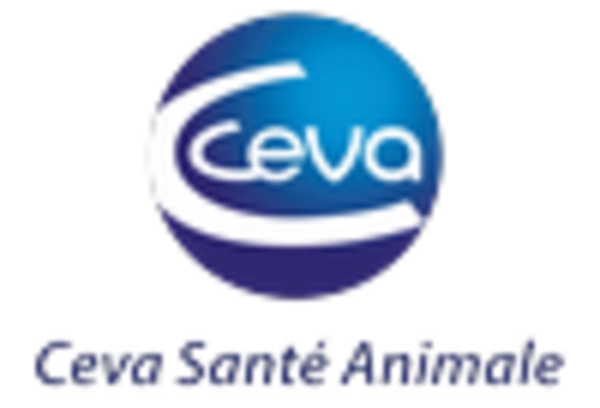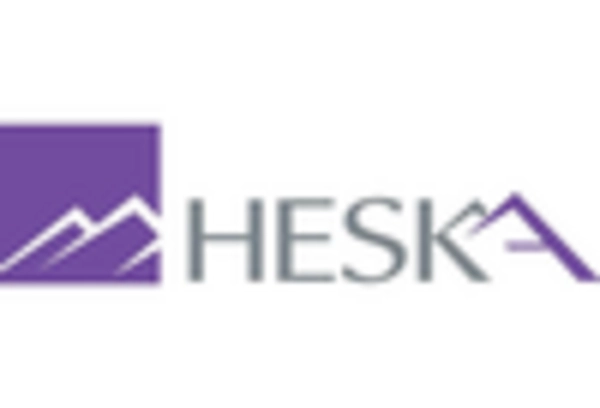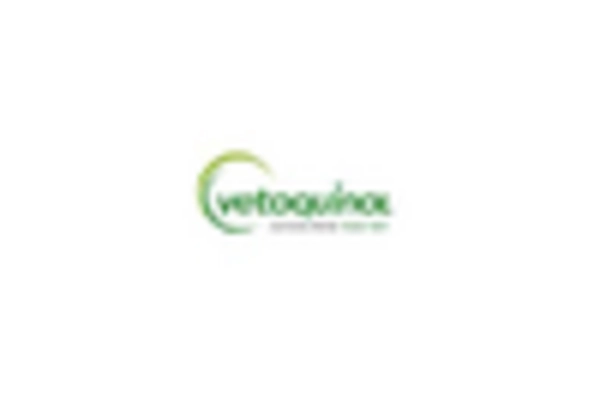Advancements in Vaccine Technology
Technological advancements in vaccine development are significantly impacting the avian influenza-vaccine market in Japan. Innovations such as recombinant vaccines and adjuvants are enhancing the efficacy and safety profiles of avian influenza vaccines. Research institutions and pharmaceutical companies are collaborating to develop next-generation vaccines that provide broader protection against various strains of avian influenza. The introduction of these advanced vaccines is likely to increase vaccination rates among poultry, as farmers seek effective solutions to combat the disease. Furthermore, the potential for these technologies to reduce production costs may also attract more stakeholders to the avian influenza-vaccine market, thereby stimulating growth and improving overall poultry health.
Government Initiatives and Funding
Government initiatives play a crucial role in shaping the avian influenza-vaccine market in Japan. The Japanese government has implemented various programs aimed at controlling avian influenza, including financial support for vaccine research and development. In recent years, funding has increased, with allocations reaching approximately ¥3 billion annually for vaccine-related projects. These initiatives not only facilitate the development of innovative vaccines but also promote public-private partnerships. The collaboration between government agencies and private companies enhances the efficiency of vaccine distribution and administration. As a result, the avian influenza-vaccine market is likely to expand, driven by these supportive measures that aim to mitigate the impact of avian influenza on the poultry industry.
Consumer Demand for Safe Poultry Products
Consumer awareness regarding food safety is significantly influencing the avian influenza-vaccine market in Japan. As consumers become more informed about the risks associated with avian influenza, there is a growing demand for safe poultry products. Surveys indicate that approximately 70% of consumers prioritize purchasing poultry that is certified as vaccinated against avian influenza. This trend compels poultry producers to adopt vaccination programs to meet consumer expectations. Consequently, the avian influenza-vaccine market is likely to benefit from this shift in consumer behavior, as producers seek to enhance their product offerings and ensure compliance with safety standards. The emphasis on food safety is expected to drive the adoption of vaccines, thereby fostering market growth.
International Trade Regulations and Standards
International trade regulations and standards are shaping the avian influenza-vaccine market in Japan. As Japan is a significant player in The avian influenza-vaccine market, compliance with international health standards is essential. The World Organisation for Animal Health (OIE) sets guidelines that influence vaccine requirements for poultry exports. Japan's adherence to these standards necessitates the development of high-quality vaccines to ensure that poultry products meet international safety criteria. This regulatory environment drives innovation within the avian influenza-vaccine market, as manufacturers strive to produce vaccines that comply with stringent international regulations. Consequently, the need for compliance is likely to foster growth in the market, as it encourages the development of effective vaccination strategies.
Rising Incidence of Avian Influenza Outbreaks
The avian influenza-vaccine market in Japan is growing due to the increasing frequency of avian influenza outbreaks. Reports indicate that the number of outbreaks has surged, leading to heightened awareness among poultry farmers and consumers. This situation compels the government and private sectors to invest in vaccine development and distribution. The Japanese Ministry of Agriculture, Forestry and Fisheries has allocated substantial funds, estimated at ¥5 billion, to enhance vaccination programs. Consequently, The urgency to control outbreaks drives demand for effective vaccines, propelling the avian influenza-vaccine market. The need for rapid response mechanisms to outbreaks further emphasizes the importance of vaccination in safeguarding poultry health and ensuring food security.

















